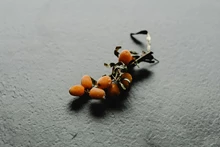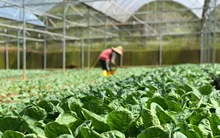
In a shift of the domestication of cows, camels are now increasingly finding themselves enclosed within vast Middle Eastern dairy farms, where they are milked by machines. Traditionally known for their resilience in traversing desert landscapes, camels are now being adapted to a sedentary farming model, presenting both opportunities and challenges for the future of agriculture.
Camels: The Climate-Resilient Livestock
With unique adaptations to extreme climates, camels are proving to be ideal livestock for the changing climate. Their ability to withstand hot days and freezing nights, along with their capacity to survive on minimal water and vegetation, positions them as valuable assets in adapting food production to environmental shifts, particularly in drylands.
Rise of the Industrial Camel Industry
Driven by a growing demand for camel milk as an alternative to traditional dairy products, the camel industry is witnessing a surge in commercialization. From the Gobi Desert of Mongolia to the deserts of Oman, camel milk is gaining popularity for its nutritional benefits and versatile uses, fueling the establishment of industrial-scale dairy farms.
While the industrialization of camel farming presents economic opportunities, it also brings forth challenges. Aggressive behavior during mating seasons and longer gestation periods pose obstacles to large-scale operations. Moreover, concerns are raised by traditional camel herders who fear the loss of cultural heritage and environmental sustainability associated with the shift towards mega-dairies.
A Clash of Traditions and Modernization
The transition to industrialized camel farming is met with resistance from nomadic herders who have historically relied on traditional methods of camel rearing. Rejecting what they view as an "extractive model" imposed during colonial times, these herders advocate for a more sustainable approach to camel husbandry that respects both the environment and indigenous knowledge.
As camels step into the realm of commercial dairy farming, the clash between tradition and modernization highlights the complexities of agricultural development.











